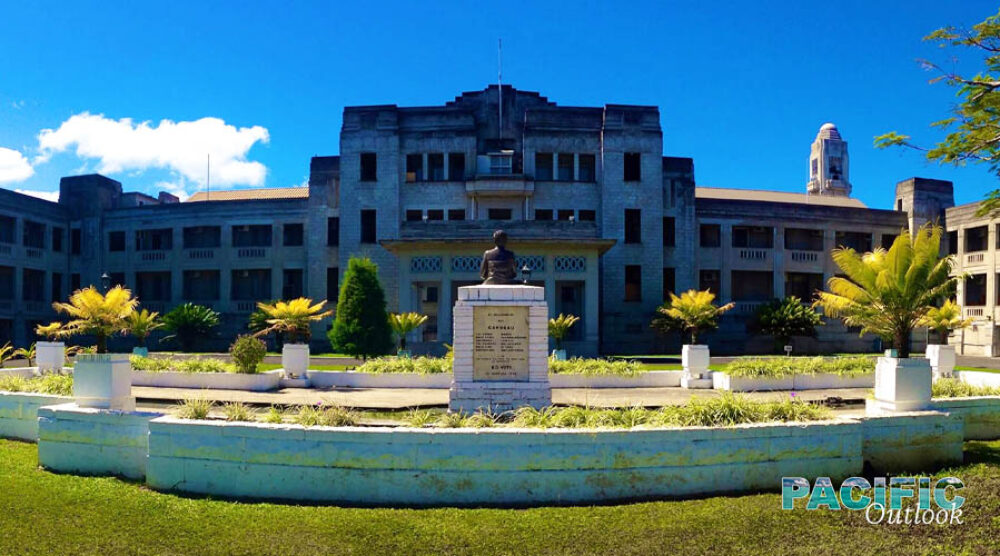ROMITESH KANT |
Fiji’s general elections will take place sometime before 9 January 2023. While the election date has not been announced, the official campaign period began on 26 April 2022 and will end 48 hours before Election Day. The announcement of the beginning of the official election campaigning allows the Fijian Elections office to monitor campaign activities.
FijiFirst won the 2018 election with 50.02 per cent of the total votes cast. It was able to form a government on its own after winning 27 of the 51 seats available to it under the D’Hondt system. The Social Democratic Liberal Party (SODELPA) came in second with 39.85 per cent of the vote, making it the second-largest party. With a vote share of 7.38 per cent, the National Federation Party (NFP) was the only other political party to pass the 5 per cent threshold required to acquire a seat in Parliament. The current 51-member Parliament comprises 27 FijiFirst MPs, 21 SODELPA MPs, and three NFP MPs.
Key political parties
As of May 2022, there are nine registered political parties in Fiji. In addition to the three currently represented in Parliament, there are Freedom Alliance, Unity Fiji Party and the Fiji Labour Party (FLP), and three newly registered parties―The People’s Alliance Party (PA), New Generation Party, and We Unite Party. The People’s Alliance Party has announced 24 provisional candidates, while SODELPA has announced 42 provisional candidates. Other parties will announce provisional candidates in the coming weeks and months.
Restricted civic spaces
The CIVICUS Monitor, has classified Fiji’s civic space as ‘obstructed’ due to severe restrictions on fundamental rights.
Following a general election in 2014―the first in eight years―the country reverted to an elected government, and a second election was conducted in 2018. However, the transition to a fully functioning democracy is far from complete.
Since the 2014 elections, the Fiji parliament has had a significant flaw―executive-legislative interactions are biased in favour of the executive. This has been a substantial impediment to the consolidation of democracy in Fiji.
Legal framework
The 2013 Constitution includes electoral management bodies (EMBs) and the voting system. Voting procedures, campaign rules, and the resolution of election disputes are all covered by the Electoral Act (2014). Registration of political parties and their activities and political financing is regulated by the Political Parties Registration Act 2013.
The Electoral Commission (EC) and the Fijian Elections Office (FEO) comprise Fiji’s election management body.
The frequency with which electoral laws in Fiji are changed is cause for concern. While these changes appear minor or technical on the surface, they could have significant political ramifications and are often rushed through the legislature with little parliamentary debate and even less public discussion.
In September and October 2021, the parliament also passed two substantial amendments that will likely affect the conduct of elections. In September 2021, several amendments were made to the Electoral (Registration of Voters) Act 2012 (Voter Registration Act). Due to these changes, there is a genuine danger that some Fijians, particularly married women, will be denied voting rights in 2022. The amendments seem to have been prompted by a High Court ruling against the government, so this result is not entirely unintended. Seven women with support from the Fiji Women’s Rights Movement (FWRM) and the Fiji Women’s Crisis Centre (FWCC) have filed a constitutional challenge on the grounds of sex, gender and marital status discrimination and also on the basis that it violates the privacy and social-cultural identity of 100,000 Fijian women. Judgment on this case is still pending. Another significant amendment involves political parties’ election campaigning and manifestos. Bill 29 of 2021, an act to amend the Financial Management Act, 2004, includes an amendment to the Electoral Act as an appendix. This bill was rushed through Parliament in July 2021. This amendment penalises political parties, candidates, and political party representatives who fail to provide “an immediate written explanation” of how they intend to pay for any “financial commitments” (essentially, election promises with financial implications).
Conclusion
The international community has seen the two most recent elections in Fiji (in 2014 and 2018) as credible and fair. Nevertheless, they have not been genuinely competitive; FijiFirst has enjoyed significant advantages as the incumbent. It uses government power and resources to influence elections. Senior government figures, for example, disbursed grants and funds and engaged in other activities (during the 2018 election) that benefited the party they were affiliated with. FijiFirst will likely run an identical campaign in 2022 The dominance of FijiFirst in Parliament and its popularity with the public has left little space for opposition forces to assert themselves politically. FijiFirst’s legislative majority has allowed the administration to pass bills and budgets with little opposition scrutiny. Six SODELPA MP’s and a former Fiji First MP have been charged with one count of false information to a public servant and one count of obtaining financial advantage. Former SODEPLA MPs Niko Nawaikula and Ratu Suliano Matanitobua were found guilty of lying to parliament and receiving a financial benefit. They subsequently lost his seat in the parliament and is now ineligible to contest in the upcoming elections.
In Fiji’s 52 years as an independent state, democratic consolidation remains precarious. Fiji has not witnessed a peaceful transfer of power. The personalised-dominant power politics of Bainimarama and his FijiFirst party point to the fact that stability in Fiji will be guaranteed by the extent to which the ruling party can control the transition process.
Romitesh Kant is a PhD Candidate in the Department of Pacific Affairs, Australian National University.








